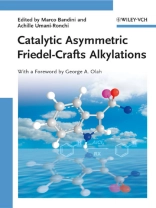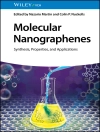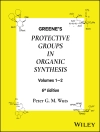This first comprehensive overview of this important synthetic reaction covers the whole spectrum of this modern and rapidly developing field. Clearly structured, the book presents all the known synthetic approaches for the construction of aromatic compounds bearing benzylic stereocenters with a defined configuration. With its representative synthetic procedures, organocatalysis and industrial applications it combines a theoretical basis with practical examples, resulting in valuable advice for beginners and experts alike.
The ultimate source for every synthetic chemist in academia and industry.
สารบัญ
GENERAL ASPECTS AND HISTORICAL BACKGROUND
Introduction
General Aspects and Historical Background
Catalytic Enantioselective FC Reactions: An Introduction
MICHAEL ADDITION
Chelating Alpha, Beta-Unsaturated Compounds
Simple Alpha, Beta-Unsaturated Substrates
Nitroalkenes
ADDITION TO CARBONYL COMPOUNDS
Aldehydes/Ketones
Imines
NUCLEOPHILIC ALLYLIC ALKYLATION AND HYDROARYLATION OF ALLENES
Introduction
Allylic Alkylations
Metallo-Catalyzed Hydroarylation of Allenes
NUCLEOPHILIC SUBSTITUTION ON CSP3 CARBON ATOMS
Ring-Opening of Epoxides
Direct Activation of Alcohols
UNACTIVATED ALKENES
Introduction
Early Studies
Rh(I)-Catalyzed Enantioselective Hydroarylation of Iminoarenes
Pt(II)-Catalyzed Enantioselective Hydroarylation of Alkenylidoles
Au(II)-Catalyzed Enantioselective Hydroarylation of Allenylindoles
Conclusions and Outlook
Experimental: Selected Procedures
CATALYTIC ASYMMETRIC FRIEDEL-CRAFTS ALKYLATIONS IN TOTAL SYNTHESIS
Introduction
Total Synthesis of Indole-Containing Compounds
Total Synthesis of Pyrrole-Containing Compounds
Friedel-Crafts Alkylation of Furan Derivatives in Total Synthesis
Friedel-Crafts Alkylation of Arenes in Total Synthesis
Asymmetric Synthesis of Natural Products Based on Diastereoselective Friedel-Crafts Reactions
INDUSTRIAL FRIEDEL-CRAFTS IN CHEMISTRY
Introduction
Green Chemistry and the Friedel-Crafts Reaction
Heterogeneous Catalysts for the Friedel-Crafts Reaction
Large Scale Hydrocarbon Processing
Conclusions and Perspectives
เกี่ยวกับผู้แต่ง
Born in Faenza, Italy, in 1973, Marco Bandini received his BSc in chemistry from the University of Bologna in 1997 and his Ph D in 2000 under the supervision of Prof. Achille Umani-Ronchi. That same year he was appointed an assistant professor in the university’s Department of Chemistry ‘G. Ciamician’. He has been a visiting researcher at the North Carolina University at Chapel Hill and at the Clean Technology Centre of the University of York, as well as a recipient of the C.I.C.O. Junior Award in 2002 and the ‘G. Ciamician’ Medal in 2005. Dr. Bandini’s scientific interests current focus on the development of new chiral homogeneous as well as heterogeneous catalysts for asymmetric transformations.
Achille Umani-Ronchi graduated in chemistry in 1960 from the University of Rome, Italy, and has been a Full Professor at the Faculty of Sciences of the University of Bologna since 1980.
From 1961 to 1969 he was an assistant at the Politecnico di Milano, before becoming an assistant professor at the University of Bari, carrying out research in organic synthesis with Professor G. Cainelli. In 1964-65 he worked with Professor Duilio Arigoni at ETH, Zurich on enzymatic reactions, and with Professor Jack Lewis at the University of Cambridge on Organometallic chemistry. He was a scientific committee member of I.A.S.O.C. since its foundation until 1990 and in 2002 received a ‘Premio alla Ricerca’ grant from the Italian Chemical Society for the relevant results obtained in the area of synthetic organic chemistry followed by the ‘Piero Pino’ gold medal from SCI for excellent results in asymmetric catalysis in 2007. Professor Umani-Rochi’s current research is centered on the synthesis of new chiral Ligands and their applications to homogeneous and heterogeneous catalysis.












